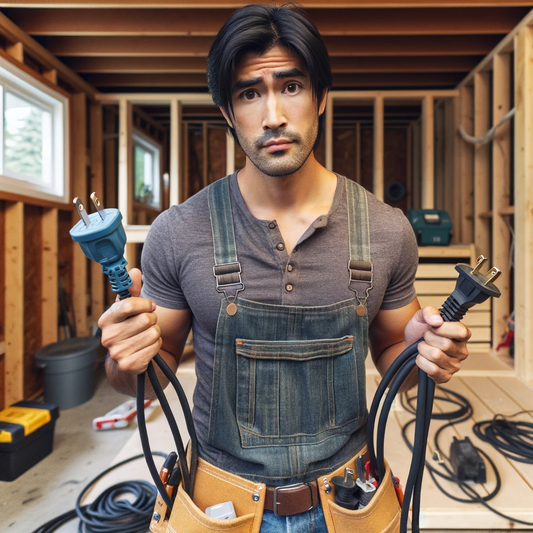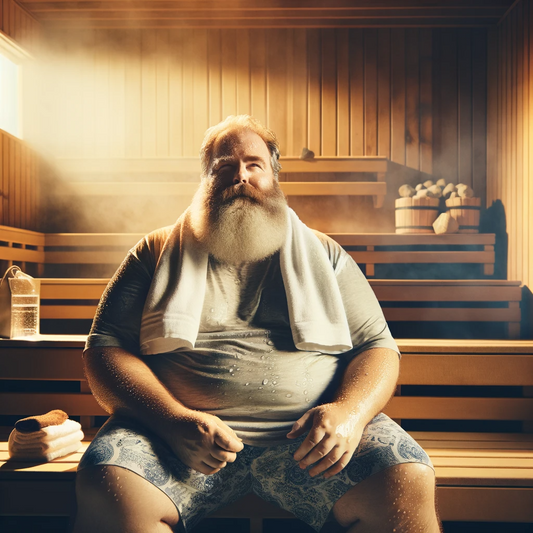Demystifying the Electric Power Requirements for Your Home Sauna
When venturing into the world of home saunas, it's crucial to consider not just the wellness benefits but also the more technical aspects. For instance, understanding electrical power requirements is essential. So, let's explore the answer to the question that has you puzzled - how many amps or volts do you need to power your sauna adequately? And subsequently, what sort of electrical work does this necessitate?
First, a primer: what’s the difference between amps, volts, and watts, anyway?
Amps, or amperes, are a unit of measurement for electrical current. Current is the flow of electrons through a conductor, and it is measured in amps. Amps are analogous to the volume of water flowing through a pipe. The higher the amperage, the greater the flow of electrons.
Volts are a unit of measurement for electrical voltage. Voltage is the pressure that drives the flow of current through a conductor. It is analogous to the water pressure in a pipe. The higher the voltage, the greater the pressure, and the faster the electrons will flow.
Watts are a unit of measurement for electrical power. Power is the rate at which electrical energy is transferred. It is calculated by multiplying the voltage by the current. Watts are analogous to the horsepower of an engine. The higher the wattage, the more powerful the electrical device.
Amps, volts, and watts are all related to each other by the following equation:
Watts = Volts * Amps
Determining the amps or volts needed for your sauna
Your sauna's electrical needs, specifically in amps or volts, largely hinge on two primary factors: the sauna's size and its heating elements.
Imagine you're preparing to host a grand barbecue party. A small, compact grill would likely struggle to keep up with the demand. Bigger spaces require more resources. It's the same with your sauna. As the size of the sauna increases, so does the power demand of heaters. Therefore, a large sauna demands a high amp or volt circuit to heat effectively.
Does sauna type influence power requirements?
Every home has its unique charm and characteristics, saunas also differ similarly. Power requirements vary depending on the type of sauna, particularly the heating method deployed.
Consider traditional dry saunas. These classic steam havens typically require 220 - 240 volts as they rely on electric heaters to produce that delightful sauna warmth. On the other hand, the more modern infrared saunas can often work efficiently using a standard 120-volt outlet.
It’s important that you do the research on the sauna you’re looking to buy. Our pages will detail what the electrical requirements are so that you can know in advance what is required before making a purchase.
Work in progress: electrical work for your home sauna
The planning stage before installing a home sauna can sometimes feel like a jigsaw puzzle, with electrical work being one of the vital pieces. The type of electrical work required largely depends on the sauna's heating method and its location.
I like to think of it like setting up a media room, being the nerdy type I am 🤓. Certain elements like screens, speakers, or projectors require their unique setup. Similarly, electrically heated saunas usually demand a dedicated circuit installed by a licensed electrician. In support of this, the Institute of Electrical and Electronics Engineers (IEEE) emphasized in one of their publications the importance of adhering to a proper installation to secure safety and efficient power utilization.
So can I install the sauna and electrical requirements myself?
We recommend you always consult with a certified electrician before buying an at-home sauna. Furthermore, depending on the type of sauna, it is definitely best to have that electrician do the install work as well (after you have assembled the unit). Learn more about whether your sauna requires an electrician in our related article here.
Remember, to ensure your sauna setup is up to code and safe, it's imperative all electrical work is carried out by a licensed professional. Always consult with your sauna kit manufacturer for exact electrical guidelines.
At the end of the day, nobody wants a frustrating experience with their home sauna due to power issues. So, get the right electrical setup and enjoy your sauna, knowing you've taken the necessary steps to ensure safety and performance.




